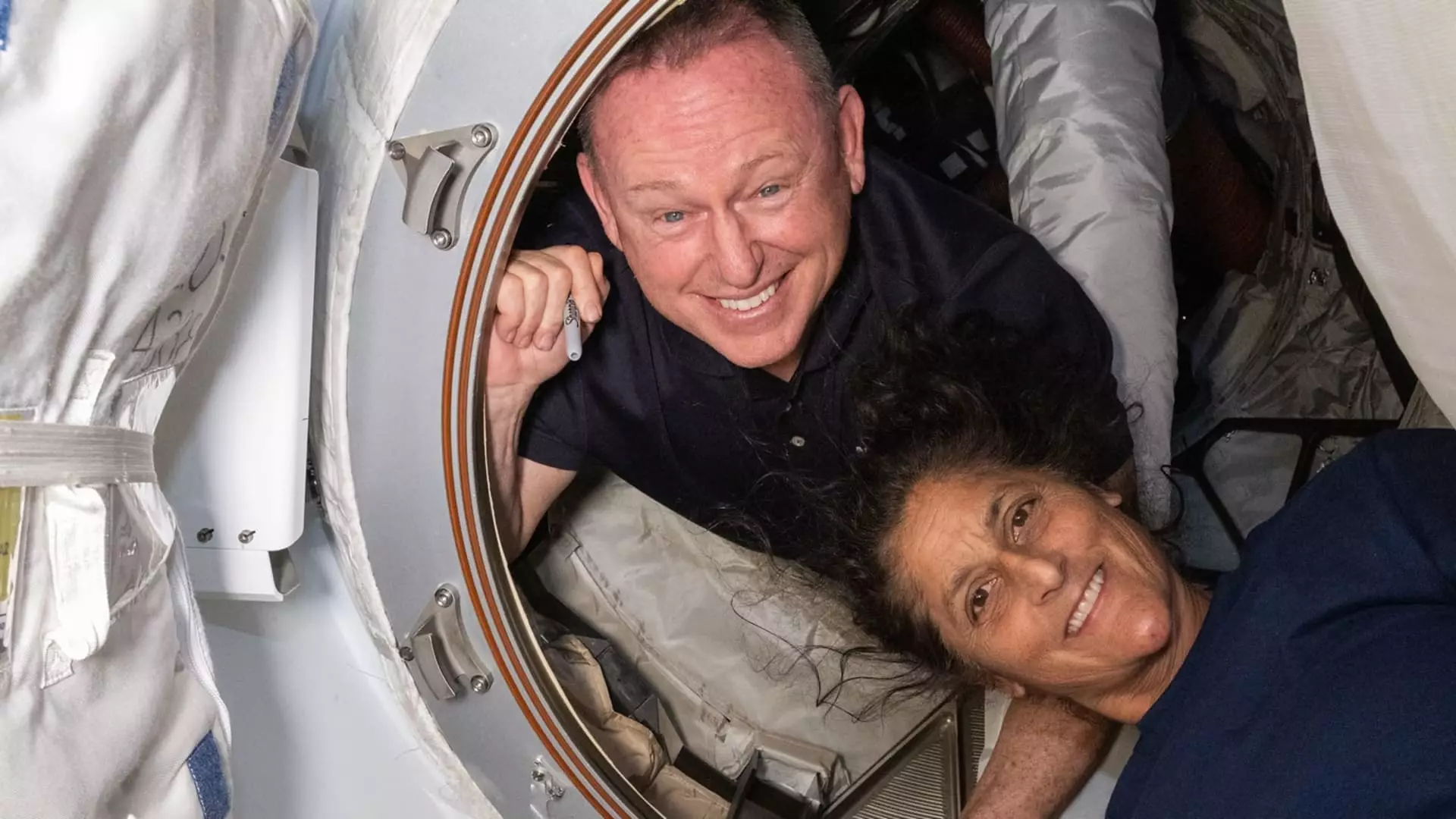What should have been a brief yet crucial test flight has morphed into an unexpected odyssey for NASA astronauts Butch Wilmore and Suni Williams. Their mission aboard the Boeing Starliner capsule, named “Calypso,” was slated for a mere nine days, yet circumstances dictated a nine-month detour into the cosmos. This is not just a tale of endurance but a narrative that exposes the precarious nature of space exploration and the alarming shortcomings of corporate partnerships associated with it.
The test flight was designed as a final verification for Boeing, meant to cement the company’s foothold in NASA’s ambitious plan to have a dual-provider system for ferrying astronauts to the International Space Station (ISS). Yet, instead of reaching their intended destination and returning home as heroes, Wilmore and Williams found themselves indefinitely tethered to a station in orbit. Boeing’s unreliable spacecraft failed to perform its primary function, raising concerning questions about its reliability and the safety protocols by which both NASA and Boeing operate. One can’t help but wonder: how many more companies, such as Boeing, will be allowed to operate in the aerospace sector with such evident lapses, especially when human lives are at stake?
The Political Landscape and Its Fallout
The adventure of Wilmore and Williams also drifted into murky political waters, which even cynics would find hard to ignore. Former President Donald Trump and Elon Musk, the maven behind SpaceX, suggested that the astronauts were “stranded” in space due to perceived bureaucratic failings of the Biden administration. Such statements may have painted an exaggerated picture, yet they reveal an unsettling reality: the interplay between political narrative, corporate interests, and human welfare in space exploration. In an era when space is increasingly commercialized, the question lingers—how do we prioritize human life while catering to the whims of corporate giants and their PR machines?
It’s a particularly disheartening scenario. Instead of concentrating on the technological advancements and scientific exploits of Wilmore and Williams, attention is diverted to political gamesmanship, with statements aimed at rallying partisan support rather than addressing the real issues at hand. What’s lost in this politicizing of space missions is the human element—the sacrifices of those who leave the comforts of Earth for scientific ambitions. Wilmore and Williams deserve commendation not only for their professional capabilities but also for their patience and resilience in the face of uncertainty.
The Cost of Failure and the Path Forward
With Boeing hemorrhaging over $2 billion on the Starliner project, the stakes have never been higher. The lack of a clear path ahead for Boeing raises questions on future contracts and operational reliability. Will this failure deter NASA from relying on Boeing going forward? Or will the incentives of corporate partnerships continue to cloud judgment? Space travel is a complex tapestry that intertwines human ambition, corporate accountability, and governmental oversight. Boeing’s failure threatens to unravel that tapestry, putting at risk not only their reputation but the broader mission of human space exploration.
NASA has demonstrated remarkable adaptability through this crisis, shifting astronauts to a SpaceX Dragon spacecraft for their return home, swiftly aligning resources to minimize disruption. Such pragmatism is commendable, but should it be the norm or the exception? NASA must emerge from this experience with not just lessons but a robust framework to ensure that all contractors meet stringent standards, fostering an environment where safety and innovation are paramount.
The Human Element Amid Technical Failures
Throughout their extended stay, one specific aspect stood out—Wilmore and Williams did not succumb to despair, despite the frustrations. In genuine reflection, Williams stated that they never felt “abandoned,” choosing instead to embrace the responsibilities at the ISS and carry out their duties like any other crew. Their experience serves as a testament to the human spirit—how individuals can adapt, persevere, and even thrive in challenging conditions. Yet, the weight of their situation lies heavy; while they managed to conduct scientific experiments and maintenance, one cannot help but think: at what cost?
It is vital we don’t romanticize the notion of astronauts facing adversity in silence. Instead, we ought to critically examine the failures that allowed for this drawn-out mission and demand accountability in space exploration, ensuring that we do not overlook the human experience amid the awe-inspiring backdrop of the cosmos. As we stand on the precipice of a new age of exploration, let us be vigilant, advocating not just for ambitious goals, but for integrity, transparency, and human-centered accountability in all facets of space travel.

